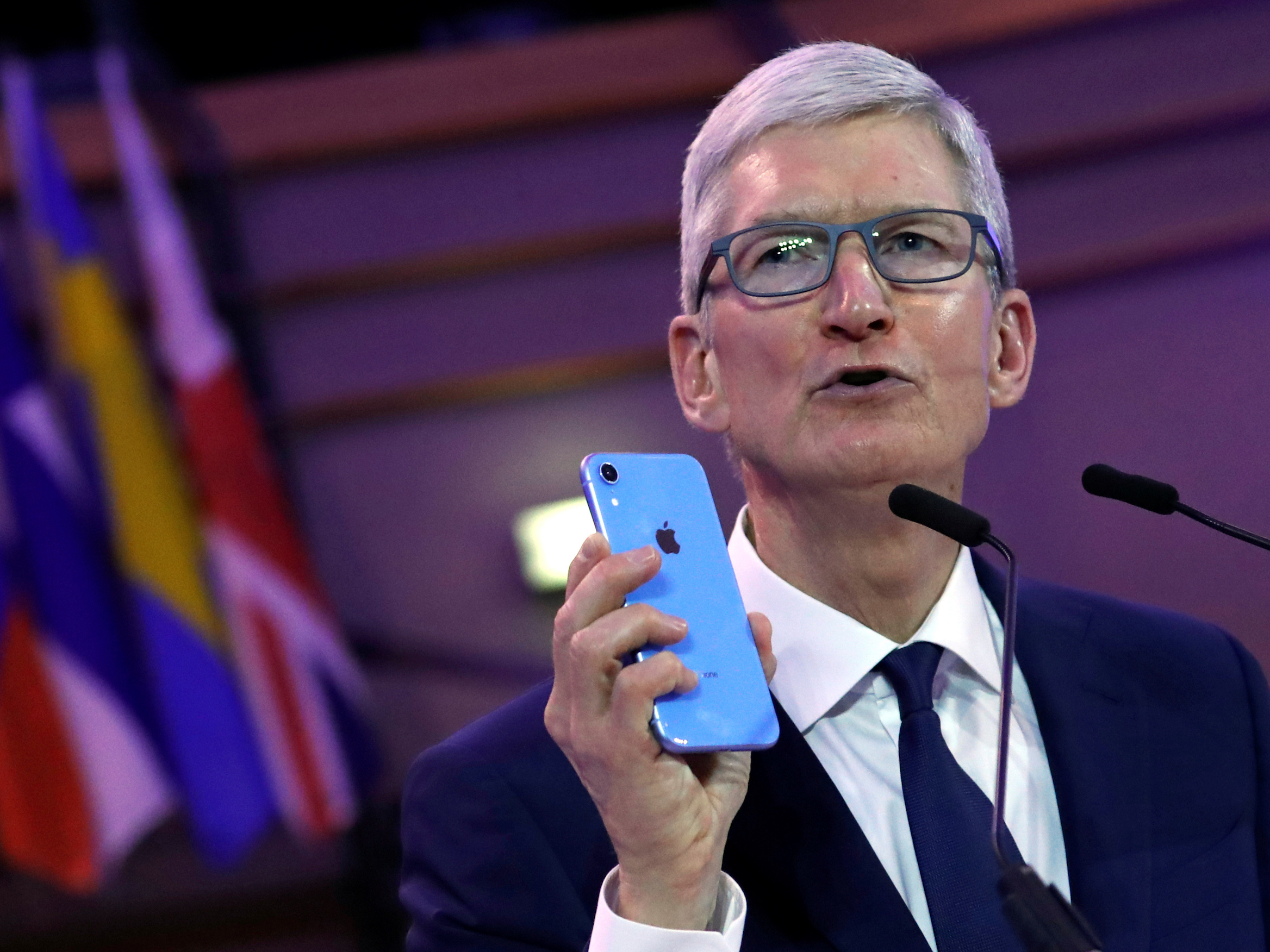- Apple is poised to join the 5G arms race after settling with Qualcomm and buying the majority of Intel’s smartphone-modem business.
- The respected analyst Ming-Chi Kuo predicts Apple will release three new iPhones in the second half of 2020, each powered by 5G.
- The Apple expert James Cordwell says that this is good news for business owners and that 5G will inspire ideas we may not yet be able to imagine – just as 4G gave rise to Instagram.
- Click here for more in the Putting 5G to Work series.
iPhone users can relax. It seems they won’t have to give up their beloved devices in favor of 5G cellular technology, with all the signs pointing to Apple joining its competitors in embracing the new technology.
After Apple settled its differences with the modem supplier Qualcomm, and following its recent purchase of Intel’s 5G smartphone-modem division, industry experts are confident that Apple’s first 5G phones will appear in the second half of 2020. The respected analyst Ming-Chi Kuo predicts that three new iPhones will appear then, each supporting 5G.
Apple would be making its 5G, or fifth generation, debut nearly a year after Samsung and Huawei, but for the tech giant to be lagging behind rivals when it comes to embracing new tech is nothing new, according to the Apple expert James Cordwell.
“When you look at the previous two generations, the original iPhone didn’t have 3G when most existing handsets did, and there was a similar situation with 4G,” Cordwell said.
"There are a couple of reasons for that. I think that when it adopts a new technology standard, Apple needs to be confident that the supply chain can manufacture 100 to 150 million parts, which is how many they'll sell on an annual basis, so that requires a certain amount of maturity in the supply chain.
"It's an issue that Samsung and others don't have. They have a far more fragmented portfolio, so they might adopt 5G in their hero devices, but they'll sell fewer units relative to the iPhone.
"Apple will also be waiting until 5G is sufficiently rolled out in terms of the connectivity. They're going to be selling a 5G phone to a bunch of consumers who wouldn't necessarily be able to use it unless 5G is rolled out in their country as well, so they want that connectivity to be there as well."

Add to these general market considerations Apple's complicated history with Qualcomm and it's easy to see why the firm is late to the party. "Ever since they reconciled their differences with Qualcomm, the route to a 5G iPhone in 2020 became a lot simpler," Cordwell said.
Once Apple does arrive, Cordwell expects it to be fully embraced by business owners. iPhone penetration sits at 35% to 40% of the UK population, Cordwell says, and it may be higher among business owners. "In fact, I would maybe guess business owners might skew towards a slightly higher figure," Cordwell said.
So that's a lot of potential customers for this new generation of phones. With 5G's speed, reliability, and near-zero latency promising to transform areas as varied as online gaming and autonomous vehicles, what can people expect from Apple in particular?
Cordwell says the new technology will inspire ideas we may not yet be able to imagine. "If we look at something like Instagram," he said, "4G made it simple to upload photos or video to a network, and equally to consume them, which brought a completely new way for businesses to reach out to customers.
"If history is a guide, once a tool is out there in the market, creative people come up with ways to utilise that technology, and that brings consumer and business benefits.
"Apple's model has always been to facilitate that via their app store as well, so I would be fully expecting to see new use cases emerging with 5G and there will be opportunities for entrepreneurs and other business owners as a big part of that."
